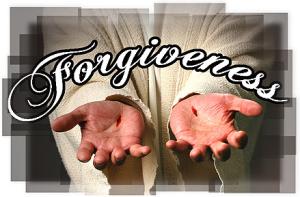
“Then Peter approaching asked him, ‘Lord, if my brother sins against me, how often must I forgive him? As many as seven times?'”
This is the question that Peter posed to Jesus in The Parable of “The Unforgiving Servant”, (Matthew 18:21). This is a question that I am sure we all have asked ourselves many times our lives. There are times that we are asked to forgive what we believe to be the unforgivable. How do you do that? “Why should I forgive after what they have done to me or my family?” These are all difficult questions to answer, but God gives us the answer in scripture. Let’s take a look.
Jesus’ Response to Peter
Matthew 18:22 – Jesus answered, “I say to you, not seven times but seventy-seven times.”
The number 7 is one of the most significant numbers in Judaism. Jesus’ response takes Peter’s question and multiplies it to number that is “so large that counting it would be ridiculous.” So Jesus wants us to forgive so often we would never stop forgiving. This is often easier said than done. Many times we are bound up by the emotion around the conflict that it is difficult to think about forgiveness. Society teaches us more about revenge than it does about forgiveness. The Catechism of the Catholic Church defines forgiveness as:
Forgiveness is the fundamental condition of the reconciliation of the children of God with their Father and of men with one another.
It is important to remember that Jesus became human to reconcile us to God for forgiveness of our sins. Adam sinned and brought death to the world. Jesus lived to establish a path back to God for our sins to be forgiven.
The Perfect Example
“Then Jesus said, “Father, forgive them, they know not what they do.” They divided his garments by casting lots”
This is the example that Jesus gives us from the cross. He asks us to forgive all that have sinned against us. I don’t know about you, but I struggle to think how I could forgive those torturing and killing me. This takes an incredible amount of love and trust in God. Certainly, this is what Jesus is asking us to do in scripture.
Let’s Look At Forgiveness
First and foremost, you have to want to forgive the other person. Many people are bound by emotion and fear that forgiving someone is “letting them get away with it.” This is for the most part emotion speaking. We need to take a long and honest look at whether we want to forgive the other person. An article from the “Bible Study Tools” website outlines the steps to forgive:
- Forgiveness isn’t a “can’t” word, it’s a “won’t” word. When people say they “can’t” forgive, it may simply be a case of they’re not ready to forgive yet. We all have the ability to forgive.
- We must remember that God has forgiven us for all of our sins. There is a one-to-one relationship between sins committed and God’s forgiveness.
- A key part of the forgiving process is “acknowledging” that you were hurt by the other person. This is not a sign of weakness. It is simply being honest with yourself that the actions hurt you.
- The last step is to give your “Yes” that you will forgive the person. If your “Yes” is sincere then you are no longer beholden to the sin. If you still carry this with you, there is more work to do to forgive the person.
If you decide that you will not forgive someone for what they have done, you will keep the pain from the sin alive. You will not heal, and will constantly remind yourself of the event bringing back the pain and the heartache.

Reconciliation to the Rescue
Reconciliation, or “confession”, is one of the most amazing sacraments available to us. Through confessing your sins to God, you become more like Jesus and that may help you to forgive what you may consider the “unforgivable.” It is very hard for us to love like God does, but the sacrament will help us to understand God’s love and forgiveness of us, therefore leading us to love and forgive more freely. Reconciliation is best described in an article on AgapeCatholicMinistries.info:
The Sacrament of Reconciliation changes our lives. It sets us free. When we seek out confession, our hearts are actively changed. Within the sacrament, we deeply encounter forgiveness on the most intimate level imaginable.
If you are struggling to forgive someone, bring this to God in prayer and allow Him to lead you to the point where you can forgive the “unforgivable.” God will address the sin with the individual. We must trust that God will hold the sinner accountable, but you can release the pain and suffering that you are enduring. What did you think of this article? Did this help you? Has anyone experienced a similar situation? Comments are encouraged and welcome.
God Bless














